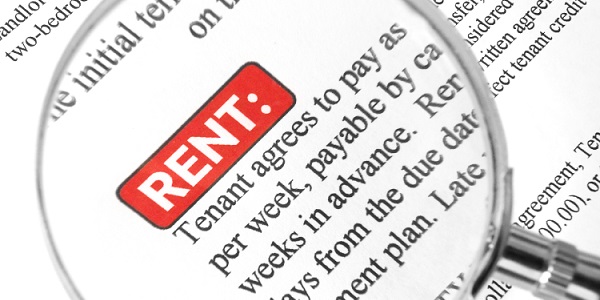If I could offer you, the self storage operator, a product that would substantially increase the number of rents you collect on time every month, with less effort, and less time for collection by your manager, along with the potential of less “missing” money and mistakes, would you buy that product from me? You might even read all of this article to find out what this product is. The product is not for sale and it may be something you already have in your office, yet many of you are afraid of it. What is it? It is a request for your occupant to provide you a credit/debit card number to pay rent.
Before you say there is no way that people that use my facility will pay by credit/debit card… hang on and read the results of our client survey later in the article. There is a right way to request and get a credit/debit card number.
Jim Chiswell has always called this request for a credit/debit card number “the guaranteed no late fee program” because you can sell the idea of requiring a credit/debit card for two different purposes. The first is a flat out request or requirement that a credit/debit card number be provided and that rent be charged to that credit/debit card each and every month. Along the East coast, particularly in states where operators are fearful of the amount of late fees they can charge without running afoul of the court system, or where late fees are so low they are not worth charging, the practice of requiring a credit/debit card has been commonplace for the last several years. However, you can also take a credit/debit card number under the pretext of protection against late fees (the guaranteed no late fee). In this discussion you say “we will hold your credit/debit card number and as long as you pay rent on time, before the late fee date, we will not charge your credit/debit card. However, lets say someone in your family gets sick or there is some other type of emergency and you go running out of town and forget to pay your self storage bill before you leave. Before you know it you are in to the self storage facility for a late fee, maybe an overlock fee, lien check fees, letter fees, you name the fees. It is frankly expensive to be late on your self storage rent. The charges are all small, but they add up quickly.”
As a matter of fact, several of my clients actually produce a document they often call something like “the high price of being late” which does nothing but describe why you do not want to be late on your self storage rent. But I digress, many of you over the years have expressed your fear to me and other lawyers that your clientele does not have/will not give a credit/debit number and, I understand in certain places there is not a lot of credit card ownership. But I contend that the population of people who do not have a credit/debit card is getting ever smaller by the day.
Before you dismiss my theory, think about what else in society you can rent without a credit/debit card. A hotel room? A rental car? Perhaps a tool from your local tool rental store? No, none of these businesses let you get in the elevator, drive off in a car, or take a chainsaw without getting all of the information they can, including a credit/debit card number to secure your proper return of the rental property. Many of you say “AH! You can check into a hotel, rent a car, etc., without a credit card as long as you make a cash deposit.” Fine, you win, in lieu of taking a credit card, take in a large cash deposit.
For the rest of you who cannot or will not take cash deposits, a credit/debit card gives you almost a guarantee of on-time rent payment and because the credit/debit cards are programmed into your software, there is a lot less chance of misapplication or misappropriation of occupant funds each month. You should be able to receive a report from the software of how many accounts are charged by credit/debit card and that amount of money should be deposited each month on the date(s) that you charge the credit/debit cards.
Now, however, for the more interesting or exciting information that we have discovered. We used to prepare our client’s rental agreements with a credit/debit card addendum, a place for the operator to “offer” the occupant the convenience of credit card payment. However, for the last several years, we have actually been including the language of requiring a credit/debit card to pay rent or requiring a credit/debit card to “back up” the payment of rent (the no late fee guarantee) or both, right in the language of the rental agreement as an included provision. Acting on the old saying “if its in writing it must be true” we are instructing the managers to show people that this is the point in the rental agreement where they have to provide a credit/debit card so that the leasing process can move along and be completed. As you know, many people signing a self-storage rental agreement, by the time they are in your office, have mentally committed to renting from you, the truck may be outside idling, and they need to get their property moved in. This is the perfect time to “ask” for the credit/debit card number, as if it is required. Do you have to require a credit/debit card? Certainly not, but you can give the appearance that the information is required to move on with the leasing of the premises. Recently, we began polling our clients who are using the “built in” provision for credit/debit cards rather than the separate addendum and low and behold we have discovered that compliance with the request to provide a credit/debit card number has jumped dramatically. While we are not statisticians and while we are taking impressions from our clients, rather than empirical data at this point, it appears that credit/debit card compliance has jumped between twenty-five and seventy-five percent, merely by making a credit/debit card provision part of the rental agreement.
We can explain this increase for many other reasons, such as the tight economy, increased acceptance of providing credit card information, more sophisticated operators/operational procedures, better software, etc., but we really think that there might be something here. If you create a “credit/debit card requirement” more people are going to believe that you have the right to take this information and they will give it to you. Just like very few people walk away from a rental car counter, hotel, or tool rental place where a credit/debit card number is required, the self storage industry is beginning to make a credit/debit card, at least as security for paying rent, the norm rather than the exception.
Do not forget to entice your managers. Telling prospective or new occupants that there is another requirement of additional information is a drag to the manager. Do not forget a little extra for the manager to make the appeal tolerable. Reward your manager with a bonus for every rental agreement where he/she gets a valid credit/debit card (with at least six months left on the expiration date). We say this because the average stay is six months in general, and the manager is saving not only him/herself a lot of time that they can then use for other activities like marketing the facility, but they are saving you a lot of time and money by getting the credit/debit card information. Make it worth their while.
Consider speaking to your attorney about adding a provision to your rental agreement that makes a credit/debit card appear to be a requirement or better yet, make it a real requirement. Whether you actually require a credit/debit card or not is up to you, but at least consider making the documents appear that a credit/debit card is required.
Jeffrey J. Greenberger is a Partner with the law firm of Katz Greenberger & Norton LLP in Cincinnati, Ohio and is licensed to practice in the states of Ohio and Kentucky. Mr. Greenberger’s practice focuses primarily on representing the owners and operators of commercial real estate, including self-storage owners and operators.
This column is for the purpose of providing general legal insight into the Self-Storage field and should not be substituted for the advice of your own attorney.
Jeffrey’s website, www.selfstoragelegal.com, contains Jeffrey’s legal opinions and insights into the self-storage industry, as well as an article archive.
Jeffrey is the legal counsel for several State Self-Storage Associations, as well as a regular presenter at Inside Self-Storage Trade Shows. You can send your questions, comments, or suggestions for future topics to Jeffrey J. Greenberger at jjg@kgnlaw.com, or mail them to Jeffrey J. Greenberger, c/o Katz Greenberger & Norton LLP, 105 E. Fourth Street, Suite 400, Cincinnati, Ohio 45202, or you can reach Mr. Greenberger at (513) 721-5151.



